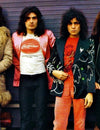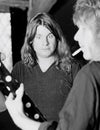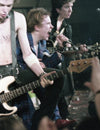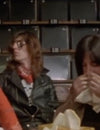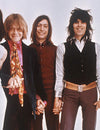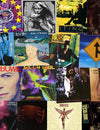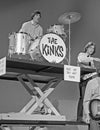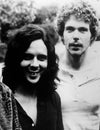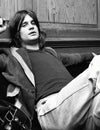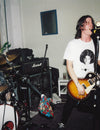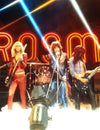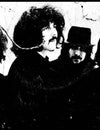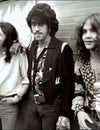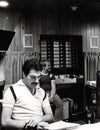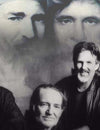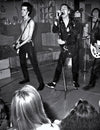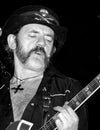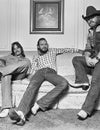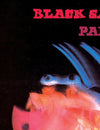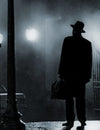
Pink Floyd: New Beginnings
On August 4th, 1967, Pink Floyd released their debut album, ‘Piper At The Gates Of Dawn.’ Though it was praised by critics and the band was on its way up, all was not as advertised. Ten of the eleven tracks on the album were creations of frontman Syd Barrett, writing eight and contributing to another two. It wasn’t long after the release of the album that Pink Floyd would experience a major change.
Barrett’s mental health was deteriorating, and his heavy use of psychedelic drugs, primarily LSD, wasn’t helping. It’s been suggested by many that he was suffering from schizophrenia. If that were the case, his use of LSD would definitely have expedited his mental issues. He went from being outgoing and social, to introverted and depressed. He experienced hallucinations, his speech was slurred, and his mood became unpredictable. He was unable to focus onstage and perform the songs. He would strum the same guitar chord throughout the entirety of a song, detune his guitar during a song, or stop singing entirely. He forgot to bring his guitar to sessions, damaged equipment, and occasionally was unable to hold his pick. At a show in late 1967, Barrett reportedly crushed Mandrax tranquilizer tablets and a tube of Brylcreem into his hair, which then melted down his face under the heat of the stage lighting, making him look like “a guttered candle.”
During their UK tour with Jimi Hendrix in November 1967, The Nice guitarist David O’List regularly had to fill in for Barrett when he couldn’t perform or failed to show up. It was at this time that David Gilmour was asked to join the band as a second guitarist to accompany and fill in for Syd. That would soon be the end of Barrett’s role in the band.
In With The New
In January 1968, on the way to a show at Southampton University, Roger Waters decided they weren’t going to stop to pick up Syd. They were going to keep him in the band as a non-touring member since he did write most of their material, but that soon proved impractical. Because of that, David Gilmour became a full-time band member. Waters recalls at their last practice session with Barrett, he wrote a song called ‘Have You Got It Yet?’ and the band was finding it impossibly hard to learn. Syd was arbitrarily changing the arrangement, and asking them “Have You Got it Yet?” Waters called the waste of time “a real act of mad genius,” and later commented, “He was our friend, but most of the time we now wanted to strangle him." On 6 April 1968, the band officially ended Barrett’s place with the band. Their contract with record label Blackhill Enterprises was terminated. Blackhill stayed with Barrett as they thought he was the most important member of the band.
David Gilmour stepped in to play guitar and take over lead vocal duties in Pink Floyd immediately after Barrett’s departure. Roger Waters and keyboardist Richard Wright occasionally sang lead. After the success of ‘The Dark Side of the Moon’ and ‘Wish You Were Here,’ Waters took greater control of the band, writing and singing lead on most of ‘Animals’ and ‘The Wall.’ This led to Gilmour feeling unfulfilled and his talents under-appreciated by the band, so in 1978 he focused his efforts on writing a self-titled solo album. Waters had taken control of the band and tensions were high in the Pink Floyd camp since the making of ‘The Wall.’ The final Pink Floyd performance of ‘The Wall’ took place on 17 June 1981, in London at Earl’s Court. It was the last time Waters would perform with the band for nearly 25 years.

It was this that led Gilmour to embark on a second solo album. ‘About Face,’ released in 1984, expressed Gilmour’s feelings on a range of topics, ranging from John Lennon’s death to his relationship with Roger Waters. Waters left the band in 1985, saying that the band was a “spent force creatively.” Gilmour now was the undisputed leader of the band and produced their next studio album ‘A Momentary Lapse of Reason’ in 1987, and ‘The Division Bell’ in 1994. He explains the creative direction he wanted to restore: “I had a number of problems with the direction of the band in our recent past before Roger left. I thought the songs were very wordy and that, because the specific meanings of those words were so important, the music became a mere vehicle for lyrics, and not a very inspiring one. ‘Dark Side of the Moon’ and ‘Wish You Were Here’ were so successful not just because of Roger's contributions, but also because there was a better balance between the music and the lyrics than there has been in more recent albums. That's what I'm trying to do with ‘A Momentary Lapse of Reason’; more focus on the music, restore the balance."
There was so much bad blood between the two former friends that Waters attempted to prevent the ‘Momentary Lapse of Reason’ tour by threatening to sue US promoters if they used the Pink Floyd name. He attempted to get royalty payments from the band for their use of the flying pig. After reaching a legal agreement, Gilmour retained the rights to the Pink Floyd name and Waters got the rights to ‘The Wall’ and other band materials. They continue to quarrel; Rolling Stone commented in 2021 that the pair had "hit yet another low point in their relationship.”
FINDING PERSPECTIVE
In 2005, Waters and Gilmour reunited to play at Live 8 - a benefit concert to raise awareness about poverty in London’s Hyde Park. They agreed that their problems were unimportant, and put their differences behind them to play together for the first time in twenty-four years. On 10 July 2010, Waters and Gilmour performed together at a charity event for the Hoping Foundation. The event was held to raise money for Palestinian children and took place at Kidlington Hall in Oxfordshire, England. In return for Waters's appearance at the event, Gilmour performed ‘Comfortably Numb’ at Waters’ performance of ‘The Wall’ at the London O2 Arena on 12 May 2011, singing the choruses and playing the two guitar solos.
On July 7th, 2006, at the age of 60, Syd Barrett died at his home in Cambridge from pancreatic cancer. Gilmour said: “Do find time to play some of Syd's songs and to remember him as the madcap genius who made us all smile with his wonderfully eccentric songs about bikes, gnomes, and scarecrows. His career was painfully short, yet he touched more people than he could ever know.”
Barrett set the tone for the band, and ‘Wish You Were Here’ was written in tribute to him. Waters commented after his death: “Syd was a lovely guy and a unique talent. He leaves behind a body of work that is both very touching and very deep and which will shine on forever.”
David Bowie added: “I can’t tell you how sad I feel. Syd was a major inspiration for me. His impact on my thinking was enormous. A major regret is that I never got to know him.”






